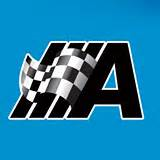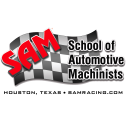What do they do?
Set up, operate, or tend paper goods machines that perform a variety of functions, such as converting, sawing, corrugating, banding, wrapping, boxing, stitching, forming, or sealing paper or paperboard sheets into products.
Also known as:
Binder, Corrugator Operator, Cup Room Technician, Envelope Adjuster, Folder Machine Operator, Gluer Operator, Napkin Machine Operator, Paper Cutter Operator, Paper Machine Backtender, Paper Machine Operator, Paper Machine Tender, Stitching Machine Operator
-
-11%
Change
Select a state to see its job growth rate ranking8,800Job Openings
Select a state to see its net job growth ranking
Looking for colleges that offer a specific major? Use the College Match Tool to find your best-matched schools and discover your estimated Net Price!
- High school diploma equivalent (42%)
- Less than high school diploma (22%)
- Some college, no degree (18%)
- Bachelor's degree (9%)
- Associate's degree (7%)
- Master's degree (1%)
- Doctorate or Professional Degree (<1%)
People in this career often know a lot about:
- Production and Processing - Knowledge of raw materials, production processes, quality control, costs, and other techniques for maximizing the effective manufacture and distribution of goods.
- Mechanical - Knowledge of machines and tools, including their designs, uses, repair, and maintenance.
- Mathematics - Knowledge of arithmetic, algebra, geometry, calculus, statistics, and their applications.
People in this career often do these activities:
- Inspect finished products to locate flaws.
- Adjust equipment to ensure optimal performance.
- Watch operating equipment to detect malfunctions.
- Mount attachments or tools onto production equipment.
- Cut industrial materials in preparation for fabrication or processing.
- Load materials into production equipment.
- Feed materials or products into or through equipment.
- Set equipment guides, stops, spacers, or other fixtures.
- Adjust temperature controls of ovens or other heating equipment.
- Set equipment controls to meet cutting specifications.
- Disassemble equipment for maintenance or repair.
- Mark products, workpieces, or equipment with identifying information.
- Stack finished items for further processing or shipment.
- Remove products or workpieces from production equipment.
This page includes data from:

 Occupation statistics: USDOL U.S. Bureau of Labor Statistics Occupational Employment Statistics
Occupation statistics: USDOL U.S. Bureau of Labor Statistics Occupational Employment Statistics































